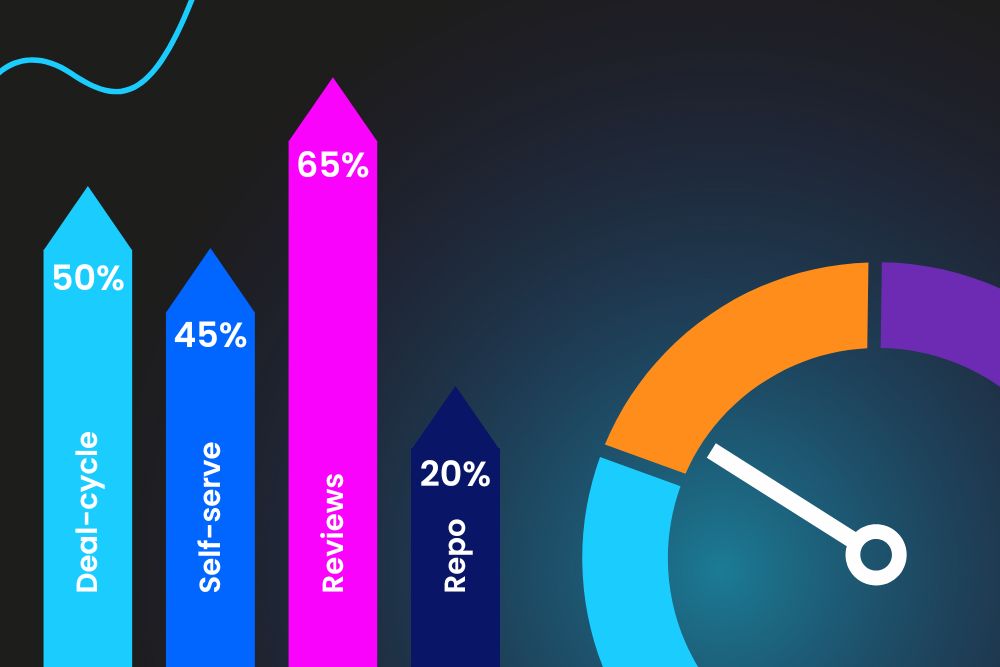What is contract administration & the best practices
The contract administration process is the planning, negotiation, execution, and performance of contracts between two or more parties for successful delivery.
August 16, 2021
December 19, 2025
What is contract administration?
If any contract delivers the agreed obligations, it must be effectively managed from start to finish. Contract administration will begin after a contract is awarded and will continue until the contract is closed or terminated.
Effective contract administration will improve the chances of successful contract delivery for the parties and continue to provide a profitable outcome for the wider business.
Contract administration is the planning, negotiation, execution, and performance of contracts between two or more parties. The contract administration process involves monitoring each agreement to maximize operational performance and reduce the risk for the party concerned.
Why is contract administration important?
Every company will enter legally binding contracts. They are the foundation of any commercial relationship to ensure each party understands expectations and what they must do to fulfil the contract terms. That also means either party is responsible if they fail to meet their requirements.
When entering a legally binding agreement, both parties will go back and forth on terms, clauses, pricing, and termination until both parties are satisfied. Contract administrators act as the middleman - the point of contact between the two involved. Having an individual or a team dedicated to having these discussions streamlines the work and aids in a smoother set of negotiations.
Contract administration is not limited to the handling of post-signature duties. The negotiation stage of the contract is vital for the business to understand the company's obligations and rights from the earliest stage to ensure a smooth commercial relationship with the parties involved.
Contract administration plays a crucial role in a project's success and the company's overall success. The contract administrator negotiates the terms, manages the fulfilment of contract terms, lowers the company's exposure to legal risk, and increases the chances of higher profits.
What is a contract administrator?
Contracts are an essential aspect for a business to be successful. If managed correctly throughout the contract lifecycle, they can prove to be one of the most substantial assets in a company.
Contract administration duties may fall to an individual or a team, depending on the company setup and size. The individuals are typically known as contract administrators. Contract administrators have a crucial role within the contract lifecycle, as they oversee and manage each contract.
The simplest definition of a contract administrator's role is managing and communicating a contract between parties. The employees responsible for a company's contract administration will focus their primary efforts and work on the planning and execution of contracts.
What does a contract administrator do?
A contract administrator's duties can vary depending on the type of contract, as each contract will have a set of unique demands and obligations that need to be fulfilled.
Due to the word "administration", some companies bypass or overlook the need for a contract administrator. But a contract administrator plays a crucial role in the contract lifecycle - writing letters, responding to emails, and managing the bureaucracy, similar to a project manager.
The role requires the individual to have strong commercial awareness of the legal field. Entering binding contracts is critical in many businesses' financial and operational success, so finding individuals with the correct skill set and knowledge base is crucial.
In many ways, the contract administrator acts as a third-party agent on behalf of the company. The document is prone to multiple errors, party disputes, and miscommunications in contract creation. It is the responsibility of the contract administrator to oversee these types of issues and produce the best possible version of the contract.
Contract administration best practices
Like any project, if the contract is expected to deliver a successful business outcome, it must be planned from start to finish.
The contract administration process will vary depending on the business sector and the type of contract. However, we have included the fundamental stages of contract administration that apply to all businesses.
1. Contract creation
Firstly, contract administration begins with a clear understanding of the goals and objectives of a contract. Contract administrators will set the scope and lay the foundations for the project, highlighting the deliverables, creating timelines, and determining how to measure KPIs (Key Performance Indicators).
2. Contract authoring
With the foundations laid and the parties in agreement on the outcome and expectations, the contract moves onto the contract authoring stage. Also known as contract writing, the contract authoring stage involves the parties and stakeholders establishing the terms and conditions of a contract. Typically, a legal team or another party will write the contract that defines the agreement by bringing together standard clauses, key dates, pricing, and other crucial data.
3. Negotiation
Contract negotiation is a formal process where the parties reach a legally binding agreement on their future relationship. The process provides an opportunity to increase the economic value and ROI of the relationship and minimize the risk associated with your company. Negotiations typically begin with redlining. The redlining process allows each party to remove, modify, or exclude clauses and terms before signing the dotted line.
4. Contract execution
The most critical stage of the process is the contract execution phase, in which the parties involved will sign the dotted line, meaning the terms of the contract now bind them. Monitoring compliance will be ongoing for the agreement's lifetime by the person appointed as the Contract Manager.
What is contract administration software?
Effective contract administration will significantly improve the chances of successful contract delivery and provide a profitable outcome for the wider business until the contract finishes. But there is no doubt that it can be a complex, sophisticated and time-consuming process. Companies across the globe are exploring ways to replace outdated, inefficient processes with contract review, creation, and management tools like Summize.
Some of the main benefits include cost-effectiveness, accuracy, and speed. With Summize, users can reduce the time spent reviewing a contract by up to 85%, freeing up time and resources for other fee-earning activities. Using our software can simplify your business processes and empower your legal team to focus on your company's future.
Summize is a flexible tool that helps you easily create contracts within an everyday program - Microsoft Word. Our add-in links to your playbook and standard clauses, making it faster to generate contracts from scratch.
Explore our software by clicking the button.
Discover even more!
Explore more about contracting and CLM in our ultimate contract guides








